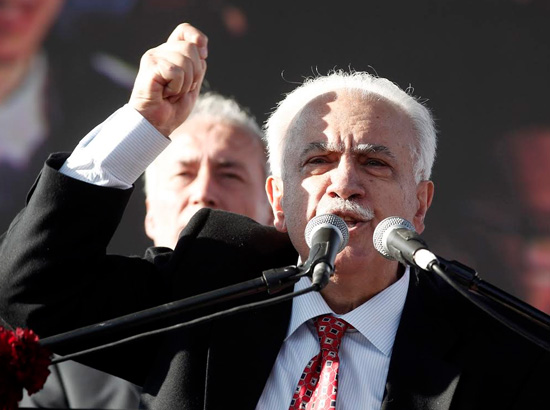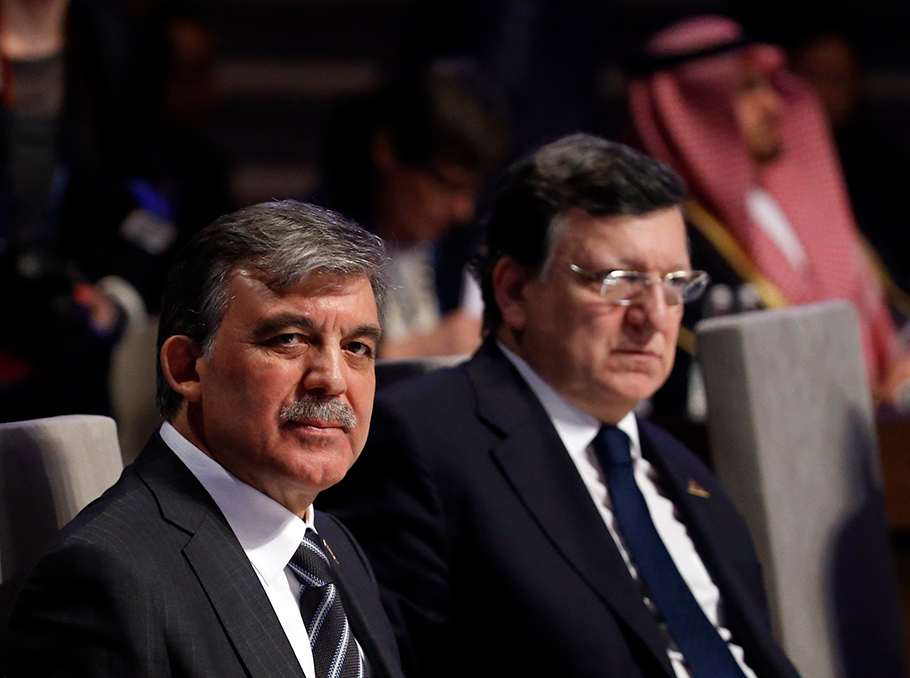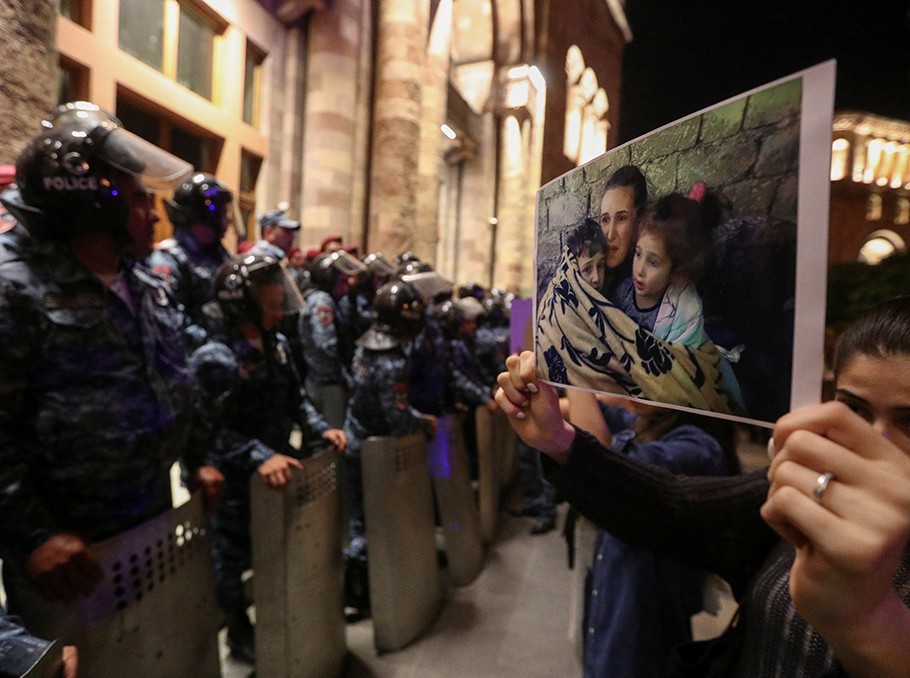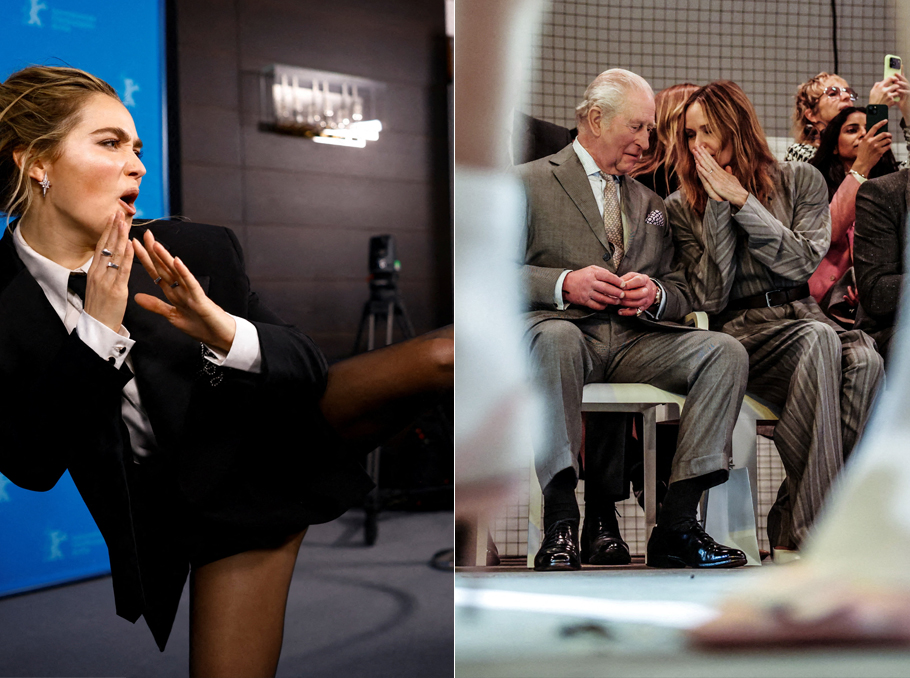“Perincek v. Switzerland” case which has been in court for about 8 years has recently taken a new turn. Swiss authorities resolved to appeal to the European Court for Human Rights (ECHR) decision made on December 17, 2013, which stated that the Armenian Genocide’s denial by the leader of Workers’ Party of Turkey Dogu Perincek is not a crime. The trial is gaining a new character due to the Armenian Genocide’s Centennial in 2015 and Armenian experts think it a challenge for Armenia.
According to Senior Research Fellow at Institute of Oriental Studies of Armenian National Academy of Sciences Vahram Ter-Matevosyan, the ECHR’s decision was unexpected for the Armenian side while Turkey was directly involved in the court trial.
“At first, Armenia’s position was that the ECHR’s December 17 verdict in legal and procedural terms didn’t directly concern Armenia and consequently, official Yerevan couldn’t be involved in the process. Taking into consideration the Switzerland’s decision to appeal the verdict and the work done by Armenia, Diaspora bodies and particular persons to this end, we can say now that the previous stance - not to take part in the process - turned out to be unproductive. Before the verdict, it seemed the ECHR couldn’t make a decision in favor of Perincek as our stance was fair. And we again realized that only through coordinated actions of Armenia, Diaspora and particular persons can we reach a result”, he said to Mediamax.
At the same time, the expert noted that we should keep being alert as first of all, the appeal may be turned down and secondly, it goes without saying that Turkey won’t twiddle its thumbs. Besides, it’s quite possible the process of appealing may last rather long and it’s important not to lose control over the process.
“Ahead of the Genocide Centennial, the process linked to ECHR’s verdict will be considered a challenge. Will we be able to really push the process to the right direction or will we have to just make regrets and blames? We should define our agenda by discarding our habit of responding or acting only at the very last moment”, noted Vahram Ter-Matevosyan.
Several days after the decision was announced, Armenia hailed Switzerland’s initiative on the high level calling it “encouraging”. President Serzh Sargsyan expressed confidence that the European Court for Human Rights will make the decision which won’t offend the memory of millions of people who fell victim to genocides.
Doctor of Law of Paris X-Nanterre University and Geneva University Sevane Gharibyan noted in her interview to Mediamax that ECHR Grand Chamber must first make a decision on the acceptance or rejection of the Swiss request for referral.
“This is the crucial next step as such referral requests are seldom accepted when the cases are considered serious. For instance, since 2011 Switzerland had request a referral in 4 cases aside from the Perincek case and only one was accepted”, noted the expert.
“From a legal point of view, the confirmation of the court decision made on December 17, 2013 will create a serious problem: it would validate unequal treatment of victims of genocide or crimes against humanity in the light of distinction set by the ECHR between denial of Armenian Genocide and Holocaust of Jews. Meanwhile, Article 261 of the Swiss Criminal Law is intended precisely to avoid this kind of unequal treatment and any form of hierarchy between genocides and crimes against humanity or their denials”, noted Sevane Gharibyan talking to Mediamax.
She also stressed that many NGOs , as well as international well-known genocide scholars, and also worldwide Armenian Diaspora communities, came forward to support the request to refer the Perincek case to the Grand Chamber, because this support coming from around the world was very important and has highlighted the need of a re-examination of the case.
“If the referral request of the case is accepted, it will allow “third parties” to intervene in the proceedings. The Turkish government which has until now supported Dogu Perincek in this case, will undoubtedly try to interfere. It seems to me at this stage extremely important, not to say decisive, that “third parties” also intervene in support of Switzerland. They may be Switzerland-Armenia Association and NGOs struggling against racism, and / or the Government of Armenia. That will also be a good moment for Armenia to do so and to be heard. Such a request for intervention would be a strong symbolic and political move, which I believe to be essential”, stressed Sevane Gharibyan.
As one of the most outstanding Turkish nationalists, Dogu Perincek was arrested on “Ergenekon” case in 2008 and was sentenced to life imprisonment without the possibility of parole. However, he was released upon the court’s decision on March 10, 2014.
Secretary General of European Friends of Armenia NGO Eduardo Lorenzo Ochoa noted that “the unfair verdict will have negative outcomes for all those who stand for human rights and human dignity”.
“On the one hand, the ECHR was guided with the freedom of expression of Mr. Perincek in Switzerland. On the other hand, the Armenian Genocide is unanimously recognized by the international community of historians as a regrettable historical fact. The unfair verdict would mostly undermine the public trust toward ECHR as a structure which made a decision contradicting not only the historical fact but the Rome Statute of International Criminal Court according to which “crime of genocide” is recognized one of the 4 most serious crimes of concern of the whole international community”, said EuFoA Secretary General in his interview to Mediamax.
Though the ECHR December 17 verdict contains a reference to the recognition of Spanish and French Constitutional Courts ( in 2007 and 2012 respectively) of draft laws on criminalization of Armenian Genocide’s denials not relevant to their Constitutions , there are rumors in the media on recurrent introduction of the similar bill into the agenda of the French Senate. Experts believe it may take place before the visit of the French President François Holland to Armenia scheduled for May 2014.
Dossier
In March 2007, Turkish nationalist Dogu Perincek became the first man to be convicted of Genocide’s denial in Switzerland. During various conferences in the country in 2005, he called Armenian Genocide “international lie” and Switzerland -Armenia Association sued him in court under the article on racist discrimination.
Over the court sessions, the Turkish nationalist stuck to his stance stating that “he didn’t deny the Genocide as there was no Genocide”. As a result, on March 9, 2007, Swiss District Court recognized his violation of law and sentenced to a penalty of 12 000 Swiss franks. In the same year, Federal Supreme Court of Switzerland confirmed the decision and Perincek stated that he would appeal it to ECHR. As a result of trials which lasted for several years, the Court decided that “Criminal conviction for denial that the atrocities perpetrated against the Armenian people in 1915 and years after constituted genocide was unjustified”.
Under the ECHR decision “the free exercise of the right to openly discuss questions of a sensitive and controversial nature was one of the fundamental aspects of freedom of expression and distinguished a tolerant and pluralistic democratic society from a totalitarian or dictatorial regime”.
ECHR also clearly distinguished between denial of Armenian Genocide and Jewish Genocide noting that there are very concrete historical facts concerning the latter such as existence of gas cameras.
Turkish Foreign Ministry hailed ECHR’s decision calling it milestone for “the protection of the freedom of expression which is the fundamental element of societies committed to freedom, democracy and the rule of law”.
“It is clear that the judgment of the ECtHR is an important warning against attempts both to politicize history and law and against initiatives aimed at having a one-sided view of history registered through the use of law”, the Turkish Foreign Ministry’s statement read this.
The Armenian Foreign Ministry didn’t officially respond to ECHR’s verdict. However, experts expressed apprehensions that it may become a precedent for making similar decisions in future as well.
After the court’s verdict which called the Swiss law violation of the freedom of expression, Switzerland had 3 months to appeal it and Bern enforced the right.
Aram Araratyan





















